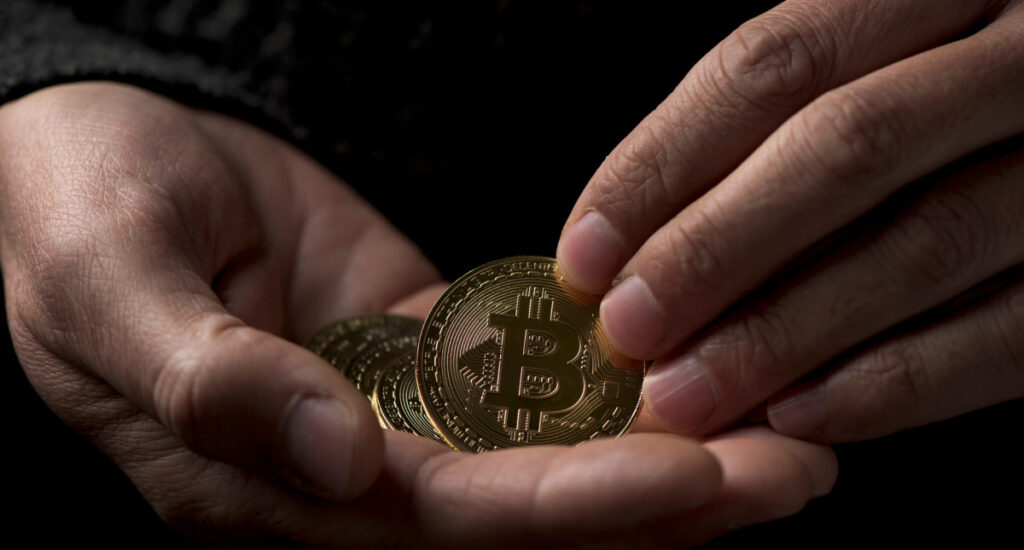A Beginner’s Guide On How To Get Your Crypto Token Listed On An Exchange

Crypto, or cryptocurrency, is a digital or virtual currency that uses cryptography for security. A cryptocurrency is difficult to counterfeit because of this security feature. A defining feature of cryptocurrencies is that they are generally not issued by any central authority, rendering them theoretically immune to government interference or manipulation.
Step 1: Researching & Choosing the Right Crypto Exchanges
There are many different cryptocurrency exchanges, each with its own requirements and listing fees. It’s important to research the different exchanges carefully and choose the ones that are right for your project. Consider factors such as:
- Reputation: Choose exchanges with a good reputation and a track record of security and reliability.
- Liquidity: Choose exchanges with high liquidity, so that your token can be easily traded.
- Target market: Choose exchanges that are popular with your target market.
- Listing fees: Compare the listing fees charged by different exchanges.
Step 2: Listing Process: Completing & Submitting the Paperwork
Once you’ve chosen the exchanges you want to list on, you’ll need to complete and submit the required paperwork. This typically includes information about your project, such as:
- Whitepaper: A document that outlines your project’s goals, team, and roadmap.
- Technical documentation: Documentation that explains the technical aspects of your project, such as your token’s smart contract.
- KYC/AML documentation: Know-Your-Customer and Anti-Money-Laundering documentation to verify your identity and address.
- Listing fee: A payment to the exchange to list your token.
Step 3: Waiting for Application to be Reviewed
Once you’ve submitted your paperwork, the exchanges will review your application. This process can take anywhere from a few days to a few weeks.
ALSO READ: What Is Nft Ticketing And How Does It Work?
Step 4: Negotiation & Listing
If your application is approved, you’ll need to negotiate the listing terms with the exchange. This may include the listing fee, trading pairs, and launch date. Once the terms have been agreed upon, your token will be listed on the exchange!
Here are some additional tips for getting your crypto token listed on an exchange:
- Build a strong community: A strong and active community can help to increase demand for your token and make it more attractive to exchanges.
- Get your token audited: Having your token audited by a reputable third party can help to build trust and credibility with exchanges.
- Market your project: Make sure to market your project well and generate awareness of your token. This will help to increase the chances of your token being listed on exchanges.
Please note that the listing process can vary from exchange to exchange. Be sure to carefully review the requirements of each exchange before applying.
What makes a good crypto token?
- Utility: The token should have a clear and useful purpose, such as powering a decentralized application (DApp), facilitating payments, or providing access to exclusive features or services.
- Adoption: The token should be widely adopted and accepted by users, merchants, and businesses.
- Security: The token should be based on a secure and reliable blockchain platform.
- Scalability: The token should be able to handle a large number of transactions without sacrificing speed or security.
- Transparency: The token’s supply and distribution should be transparent and auditable.
- Liquidity: The token should be easily traded and exchanged for other cryptocurrencies or fiat currencies.
In addition to these core characteristics, a good crypto token may also have other desirable features, such as:
- Governance: The token holders may have a say in the development and management of the project.
- Rewards: Token holders may be rewarded for participating in the ecosystem, such as through staking or liquidity mining.
- Community: The project should have a strong and active community of users and developers.
Ultimately, the best crypto tokens are the ones that solve real-world problems and offer value to their users.
examples of good crypto tokens
- Ethereum (ETH): Ethereum is a decentralized platform that enables smart contracts and the development of decentralized applications (DApps). ETH is the native cryptocurrency of the Ethereum platform and is used to pay for transaction fees and gas costs.
- Bitcoin (BTC): Bitcoin is the original cryptocurrency and is still the most popular and valuable cryptocurrency. BTC is used as a store of value and a medium of exchange.
- Solana (SOL): Solana is a high-performance blockchain platform that is known for its scalability and low transaction fees. SOL is the native cryptocurrency of the Solana platform and is used to pay for transaction fees and gas costs.
- Cardano (ADA): Cardano is a blockchain platform that is focused on scalability and sustainability. ADA is the native cryptocurrency of the Cardano platform and is used to pay for transaction fees and staking rewards.
- USD Coin (USDC): USDC is a stablecoin that is pegged to the US dollar. USDC is used to facilitate payments and transactions in the cryptocurrency ecosystem.
It is important to note that the cryptocurrency market is volatile and risky. Investors should carefully research any cryptocurrency project before investing.
Exchange-specific requirements to get your tokens listed
- Technical compatibility: Your token must be compatible with the exchange’s technical infrastructure. This includes using a supported blockchain network and token standard.
- Liquidity: Your token must have sufficient liquidity, meaning that there should be a healthy volume of buy and sell orders. This helps to ensure that users can trade your token easily and at fair prices.
- Compliance: Your token must comply with all applicable laws and regulations in the jurisdictions where the exchange operates. This may include KYC/AML requirements and restrictions on certain types of tokens.
- Team and project quality: Exchanges will typically assess the quality of your team and project before listing your token. This includes factors such as the team’s experience, the project’s roadmap, and the overall value proposition of the token.
In addition to these general criteria, some exchanges may have additional requirements specific to their platform. For example, some exchanges may require tokens to have a minimum market capitalization or trading volume, or to be listed on a certain number of other exchanges.
examples of exchange-specific requirements
- Binance: Binance requires tokens to have a minimum market capitalization of $1 million and a daily trading volume of $100,000. Binance also prefers tokens that are compatible with the Binance Smart Chain network and that incorporate BNB or BUSD into their ecosystem.
- Coinbase: Coinbase has a more rigorous listing process than other exchanges. Coinbase requires tokens to meet a number of criteria, including having a strong team, a well-defined use case, and a clear roadmap. Coinbase also requires tokens to be compliant with all applicable laws and regulations.
- Crypto.com: Crypto.com requires tokens to pass a legal and security review before they can be listed. Crypto.com also prefers tokens that solve a real-world problem or address a market need.
If you are interested in getting your token listed on a particular exchange, you should carefully review the exchange’s listing requirements. You can usually find this information on the exchange’s website.
tips for increasing your chances of getting your token listed on an exchange
- Make sure your token meets all of the exchange’s listing requirements.
- Have a strong team with experience in the cryptocurrency industry.
- Have a well-defined use case and roadmap for your project.
- Build a community of supporters around your project.
- Get your token listed on smaller exchanges before trying to get listed on larger exchanges.
It is important to note that getting your token listed on an exchange is no guarantee of success. Once your token is listed, you will still need to market and promote it in order to attract traders and investors.
In Conclusion:
launching a successful cryptocurrency project requires a strong team, a well-defined use case and roadmap, and a dedicated community of supporters. While getting your token listed on exchanges is an important step, it is not a guarantee of success. Continuous marketing and promotion efforts are essential to attract traders and investors to your project. With careful planning and execution, your cryptocurrency project has the potential to thrive in this rapidly evolving industry.







